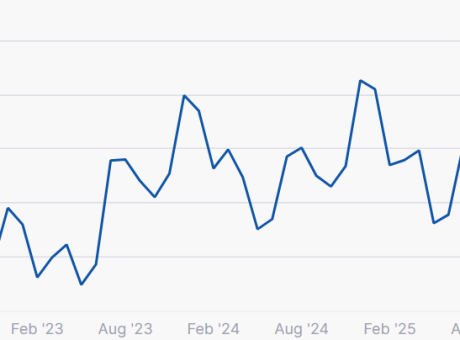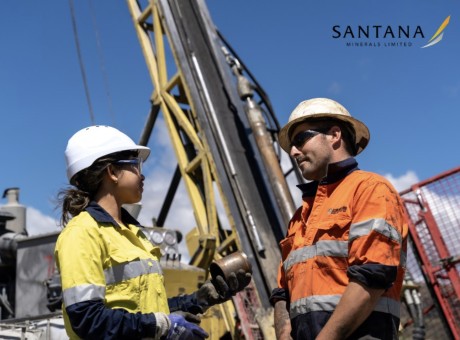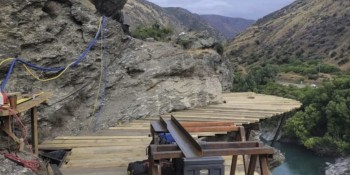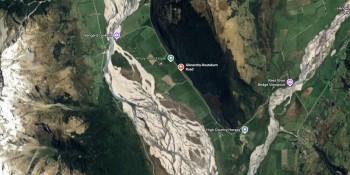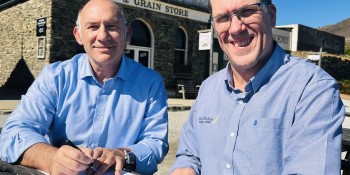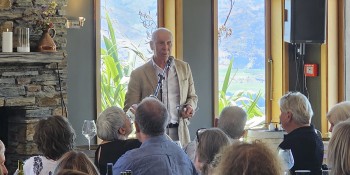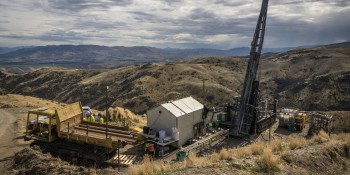Bird of century grebe dies from Lake Wānaka plastic pollution
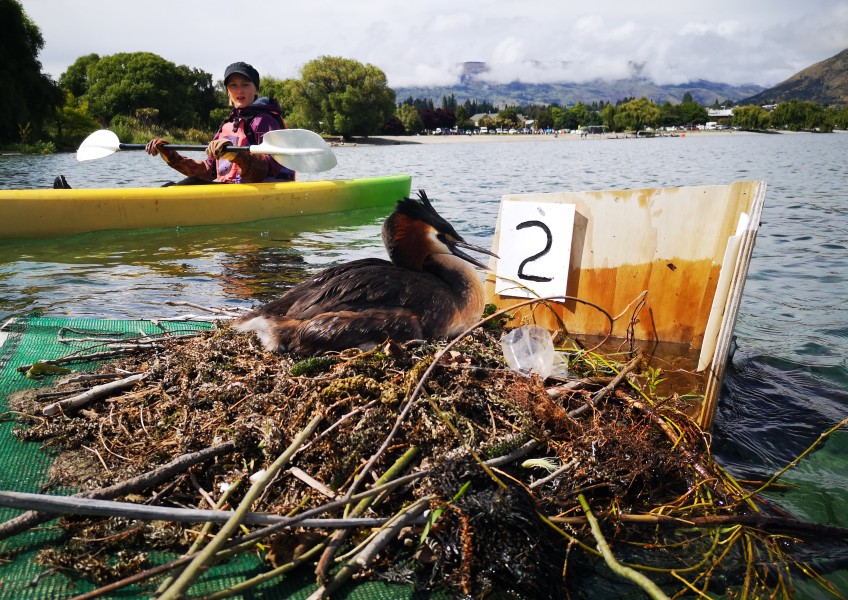
A Wānaka grebe, the celebrated bird of the century species, has died of starvation after two large pieces of Lake Wānaka plastic waste got stuck in its digestive tract.
An autopsy report by a Massey University vet pathologist found the largest plastic piece was 5.5cm long, and restricted the passage of food into the gut.
The bird was found dead on the shores of Wānaka's Bremner Bay, and local conservation groups say it's a confronting reminder for people to take their rubbish disposal more seriously.
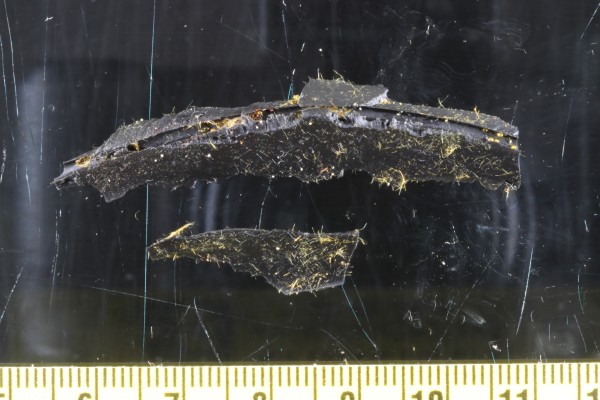
Plastic found inside the young grebe
And, it's not the only species in trouble. Wai Wanaka's ongoing study on microplastics in Lake Wānaka, led by marine scientist Veronica Rotman has recently found that there are microplastics in the belly of trout, meaning it had made its way through the local food chain.
Local conservationist John Darby, who started Lake Wānaka Grebe Project ten years ago to increase grebe numbers in Wānaka, says the finding is "very, very sad".
He notes another incident in which a bird was found with a plastic ring around its neck.
"The reality is there's just a huge amount of rubbish going into the lake... it astonishes me the fact that people are so indifferent," Mr Darby says.
When walking his dog around Wānaka, Mr Darby says he regularly finds large amounts of dumped cans and bottles recently finding 23 bottles by the Wānaka Yacht Club, and 12 by the rugby fields.
Petrina Duncan, also of Lake Wānaka Grebe Project, regularly goes for rubbish collection walks along the lakefront, and says what she found yesterday was a "normal amount to find".
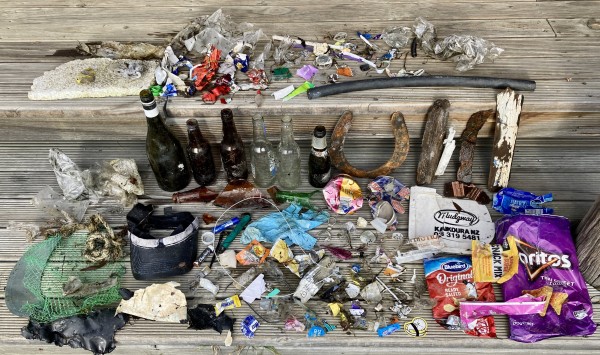
A regular amount of rubbish, Petrina Duncan says, picked up around lakefront, Wanaka marina and towards Bullock Creek in one hour.
Ms Duncan says grebes also end up having plastic in their nests, as they collect items from the lakeshore.
Ms Duncan says that numbers of the "beautiful, charismatic" bird has rapidly increased in Wānaka thanks to local conservation efforts, but the only way to ensure they keep growing is to work together to reduce its threats.
And there's ways for the community to get involved.
Jaylene Harper of Wai Wānaka says locals could pick up at least one piece of rubbish when they go out for a walk along the lake.
Wai Wānaka also organises monthly community rubbish clean-ups around the lake, and last month's cleared away over a tonne (1000 kilograms) that had been left at a spot along Cardrona River.
The next clean-up is tomorrow on July 17 at the lake Outlet.
Wai Wānaka and Lake Wānaka Grebe Project invite and encourage everyone in the community to join their efforts in reducing plastic pollution in local lakes and rivers.
Main image (Supplied: J Tuffin): Lake Wānaka Grebe Project volunteer Lily watches a grebe in its nest.





